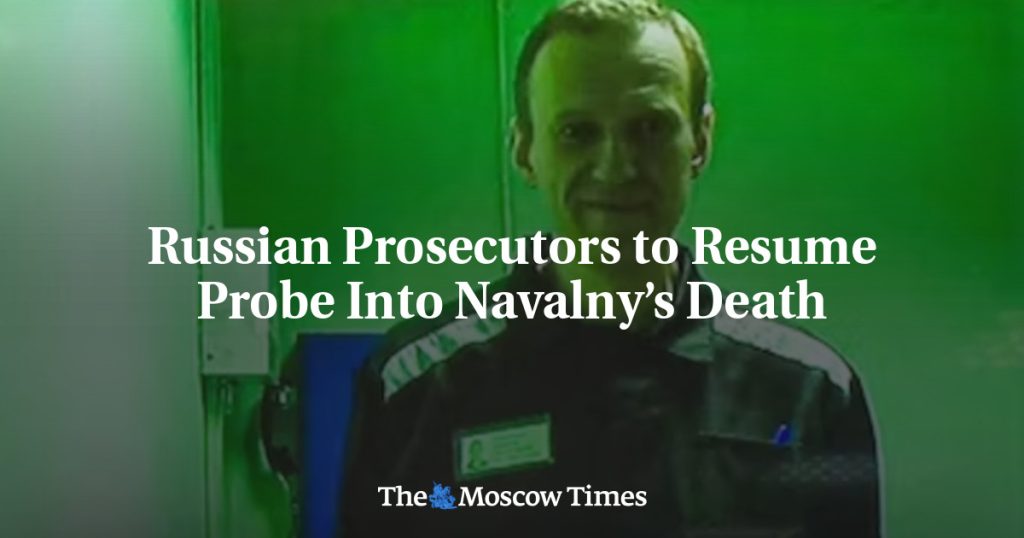Russian law enforcement authorities have decided to extend their preliminary investigation into the death of opposition activist Alexei Navalny at an Arctic prison earlier this year. Navalny was serving a 19-year prison sentence on extremism charges when he died under unclear circumstances at the “Polar Wolf” penal colony on Feb. 16. Initially, authorities in the Yamal-Nenets autonomous district where the prison was located refused to open a criminal investigation, attributing Navalny’s death to “combined diseases” rather than criminal activity.
However, on Aug. 16, regional prosecutors overturned that decision and instructed investigators to continue their probe. This decision was communicated to Navalny’s lawyer, Vasily Dubkov, in a letter dated Aug. 30. Navalny’s allies, including Ivan Zhdanov, a longtime ally living in exile, have expressed skepticism about the authorities’ motives. Zhdanov suggested that the Russian authorities may be trying to reframe the circumstances of Navalny’s death or prolong the probe indefinitely.
The decision to extend the investigation follows an open letter signed by more than 180 Russian doctors last month, urging federal investigators to charge prison staff with negligence in connection with Navalny’s death. The doctors also accused President Vladimir Putin of ignoring warnings about the life-threatening conditions of Navalny’s detention. It is clear that there is significant pressure both domestically and internationally for a thorough investigation into Navalny’s death and the circumstances surrounding it.
Navalny’s death has sparked widespread outrage and calls for justice both within Russia and internationally. Navalny, a vocal critic of Putin’s government, had previously survived poisoning with a nerve agent in 2020, an attack he and many Western governments blamed on Russian security services. The lack of transparency surrounding Navalny’s death at the Arctic prison has raised suspicions of foul play and prompted calls for accountability. The decision to continue the investigation is seen as a small step towards addressing these concerns.
Navalny’s allies continue to demand a full investigation into his death and have expressed doubts about the willingness of Russian authorities to conduct a thorough and unbiased probe. Questions remain about the circumstances leading up to Navalny’s death, and the lack of clarity has only fueled suspicions of a cover-up. The decision to extend the investigation may signal a recognition of the need for transparency, but it remains to be seen whether it will lead to accountability for those responsible for Navalny’s death.
Overall, the extension of the investigation into the death of Alexei Navalny at the Arctic prison is a significant development in the ongoing efforts to uncover the truth about what happened to the prominent opposition activist. The decision to continue the probe comes amid mounting pressure from Navalny’s allies, the international community, and Russian doctors who have called for accountability in connection with Navalny’s death. The extension of the investigation raises hopes for justice and accountability, but it also underscores the challenges in seeking transparency and truth in a political climate marred by suspicions of cover-ups and the suppression of dissent.














